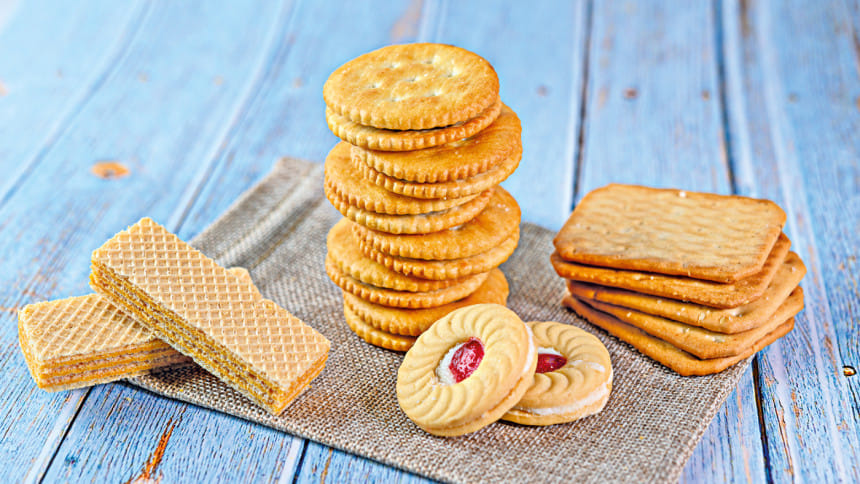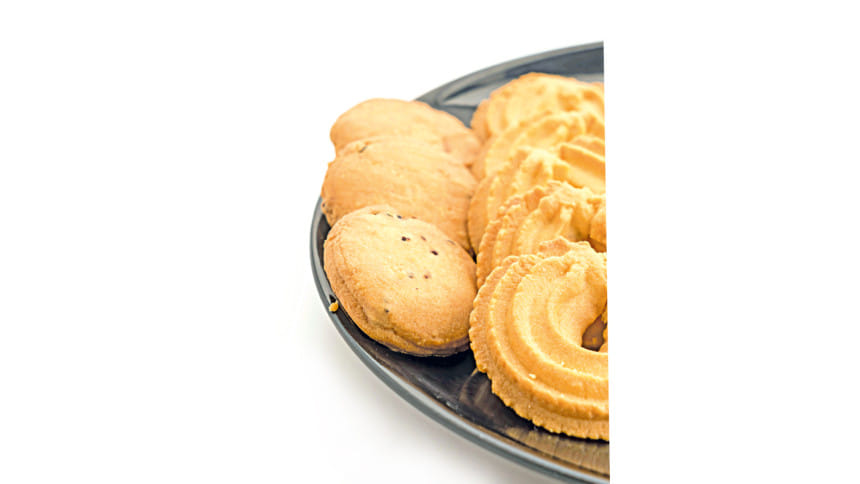More than just a bite the new face of biscuits

Walk into any grocery store in Bangladesh – from a bustling supershop in Dhaka to a tea stall in a village – and biscuits are everywhere. A staple with tea, in school tiffins, or at office desks, biscuits are deeply woven into our daily rhythms. But how often do we pause to ask: What are we really eating? In a country where convenience usually trumps consciousness, biscuits remain one of the most consumed and least questioned snack foods.
Yet, with changing lifestyles and increasing public health concerns, the humble biscuit is now at the centre of broader debates about nutrition, quality assurance, and food transparency.
The health shift in a sugary landscape
For years, biscuits in Bangladesh meant glucose sticks or classic Marie – simple, sugary, and cheap. But as awareness around non-communicable diseases like diabetes, high blood pressure, and obesity grows, a new generation of consumers is starting to read beyond the label.
"In today's fast-paced world, consumers are becoming increasingly mindful of what they eat. Health and quality are no longer optional – they're essential," says Shaheed Bin Sarowar, Head of Marketing at Dan Foods Limited, the company behind Dan Cake. "Recognising this shift, Dan Cake, a renowned brand from Denmark, is setting new standards in the Bangladeshi bakery market."
Dan Cake's growing product line now includes Oats Cookies, marketed as a fibre-rich, more wholesome alternative to conventional options. "Looking ahead, we're excited to explore low-sugar and fortified options to meet the evolving needs of our health-conscious consumers," Sarowar adds.
And it's a shift that's not just reactive – it's strategic. Healthier biscuits no longer belong to a niche market. They're part of a larger realignment, driven by consumer demand and informed dietary choices.

Are biscuits just "empty calories"?
It's a question nutritionists often raise: Are we just feeding ourselves sugar and starch under the illusion of a snack?
Sarowar believes this criticism doesn't always apply. "While it's true that some biscuits on the market are high in sugar and low in nutrients, it's important not to paint the entire category with the same brush," he explains. "At Dan Cake, we believe biscuits can absolutely be part of a balanced lifestyle when made with care and quality ingredients."
The bigger issue, he suggests, is how biscuits are made and marketed. "At the end of the day, it's about balance and transparency. We want our consumers to enjoy their treats without compromising on quality."
Quality beyond compliance
While major players in the biscuit industry follow international hygiene protocols and food safety certifications like HACCP or ISO 22000, not all manufacturers in the country meet the same standards. Local markets are still flooded with cheap, low-grade biscuits that skip corners on both ingredients and safety.
Dan Cake aims to differentiate itself through its adherence to European production techniques and rigorous quality control. "From sourcing the finest raw materials to maintaining rigorous standards, we ensure every bite is both delicious and trustworthy," says Sarowar.
This, he argues, is where manufacturers can do more than make biscuits – they can change consumer habits. "The most powerful way biscuit manufacturers can contribute to public awareness is by consistently delivering high-quality products, because quality speaks louder than any campaign."

A biscuit revolution?
The way forward isn't just about switching to oat cookies. It's about collective shifts in policy, in manufacturing, and in consumer habits.
Regulatory bodies like BSTI and BFSA must play a more proactive role in food standard enforcement and labelling guidelines. Food literacy should be part of school curricula and community education campaigns. And manufacturers must stop chasing profit margins at the cost of public health.
As Sarowar puts it, "Improving awareness starts with what's inside the biscuit. If the product is genuinely good, the message becomes much easier to share, and much more credible."
Hence, let's rethink the snack that's on nearly every Bangladeshi shelf. Biscuits are not just casual treats. They're cultural markers, nutritional variables, and trust exercises wrapped in foil. And in a time when health is not a luxury but a necessity, even something as small as a cookie can and should be a conscious choice.

 For all latest news, follow The Daily Star's Google News channel.
For all latest news, follow The Daily Star's Google News channel. 



Comments